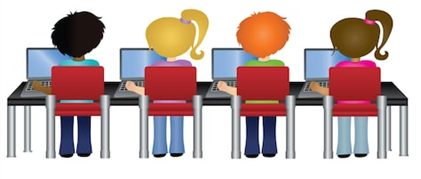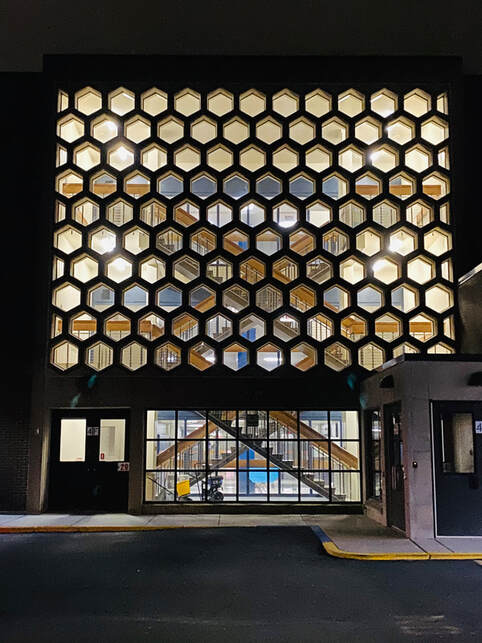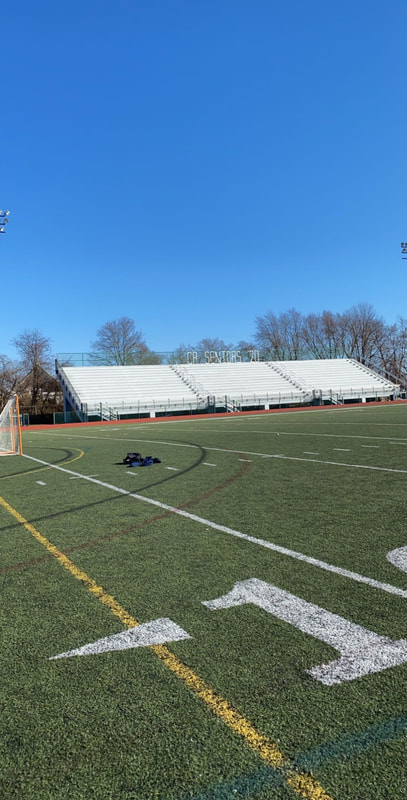 By Karen Leifer Times are difficult. According to The New York Times, as of April 15th, 2020, over two million people have been diagnosed with Covid-19 worldwide. Over 130,000 have died. Covid-19, a result of a coronavirus, has increased stress in the population. On the topic of stress, I started wondering what types of stress students face both in school and during virtual learning. To answer some of my questions, I conducted phone interviews with freshman students Sophie Snyder and Lindsay Gottlieb. Q: What are your main causes of stress? Ms. Gottlieb responded that her main cause of stress is “not understanding a concept” taught in school. Ms. Snyder’s main cause of stress is the “expectation to do well and constantly working [sic] hard.” She also feels stressed by the constant “drilling of assignments.” Both students' main stressors revolve around school-related topics. According to a 2018 poll from GlobeNewswire, forty-five percent of students reported being stressed “all the time.” Thirty-seven percent of students were “sometimes” stressed. Q: How would you evaluate your school-related stress rate on a scale of one (lowest possible answer) to ten (highest possible answer)? Ms. Gottlieb’s stress level is a six while in a traditional classroom setting, but an eight during the period of online learning. Ms. Snyder’s stress level is a six. She feels that “high school is more organized” than middle school, and she has developed time management skills. Both students rated their stress over the halfway mark of the scale. Q: To what extent are teachers aware of students’ school related stress? Ms. Gottlieb said that she believes most teachers are aware that students face stress, “but some choose to ignore it.” She also stated that some teachers are aware of the impact stress has on students’ mental health. Ms. Snyder stated that she believes teachers are aware of stress in students, but “some teachers understand better than others.” Conclusions can be drawn from both ladies' responses that some teachers are aware of students' stress, but not all are fully informed or seem concerned about its impacts. Q: Is traditional classroom learning more or less stressful than online learning and why? Ms. Gottlieb responded that online learning has been more stressful as most assignments consist of comprehending a text and responding to questions afterwards. She “would prefer to be in a classroom where a teacher’s help is available.” Ms. Snyder’s response was the opposite of Ms. Gottlieb’s. She stated that there “isn’t as much pressure” due to the pass/ fail grading system being implemented during the fourth marking period. As both responses were different, they show that learning is not a universal experience, and students’ stress stems from different sources. Q: What would a student need in order to feel less stressed? Ms. Gottlieb responded that “school stress can never be alleviated. It will always exist to some extent.” She believes that teachers need to take other classes and subjects into consideration when assigning work. Her response also included that “homework is necessary at certain times but is arguably one of the most significant causes of student stress.” Ms. Gottlieb believes that homework should consist of unfinished classwork and a little bit of practice from the lesson taught in class. She disagrees with the assignment of work that teaches a new concept, separate from the one reviewed in class. Ms. Snyder reported that “more understanding from the school [and] teachers” is necessary. She doesn’t feel as if they recognize that students have stress outside of school too. She also feels that students are often asked about, “what we want to do for the rest of our lives, while we’re still children.” After I conducted the interviews with Ms. Gottlieb and Ms. Snyder, I concluded that school is a major source of stress for students. Teachers are not always aware of their students’ stress levels and are not always taking measures to try and fix the stress students feel. For students to have a calmer learning experience, teachers may need to reevaluate their methods of teaching.
0 Comments
 By Kara Grossman It is safe to say that even with 20/20 vision going into the new year, no one saw a statewide school closure and virtual learning coming. Among all the other crazy changes everyone must make to their everyday life as a result of the COVID-19 pandemic, the most out-of-the-ordinary perhaps is virtual school. Unless you have been homeschooled for some point in your life or have taken an online class, this is an entirely new ball game. You wake up on March 12 and it’s 6:05 A.M. You probably think about different tests you have that day while getting dressed or eating breakfast. Maybe you’re struggling to work on last minute homework, or you’re making coffee to try and keep yourself awake. Then, you take the bus or drive and eventually arrive at Council Rock High School North. Numerous students constantly file in through the doors with you and make their way to the first period. Then second, followed by third, fourth, fifth, sixth, seventh, eighth, and lastly ninth. They talk to friends and teachers. They engage in lessons and absorb the material. They may be distracted from lack of sleep, but classmates still laugh and talk throughout the day. And those kids don’t realize the privilege that comes with their everyday routine. Now, merely a month later, the world for Council Rock students has inverted. They probably wake up several hours later than before and start their work at their leisure. The most-visited apps on their phone are now Canvas and FaceTime. If they are anything like me, they miss their friends and teachers. They miss all the extracurriculars and events that are cancelled. Perhaps even the imposed structure of their day. They feel as though their life has been ripped from under them, and now they must adjust to this new sense of normal. It’s novel, and it’s daunting. But throughout all these adjustments, one must maintain motivation and provide individual structure. It can be hard to accomplish schoolwork without much guidance. For some, they thrive most when they have explicit directions and in-person, synchronous learning. If students feel lost, they should remember that changes take time, and shifting to completely digital learning is not accomplished overnight. To get yourself off the ground, maybe start waking up at a uniform time every day. Check Canvas daily or map out one week at a time, and double-check works submitted to not miss assignments. Many additional resources are available, such as teacher’s announcements, virtual clinics, and websites. Your teachers want you to thrive within this virtual atmosphere and have evidently worked hard to quickly adjust lesson plans. If you can maintain motivation and utilize your resources, accomplishing work becomes easier and more familiar each time. When reflecting on this past month and the rest of the school year ahead, notice how lucky Council Rock students are to have devoted teachers and a resilient school district that made the virtual shift possible. Although stressful at first, one should look at online school as another necessary change in this unprecedented time for not only Pennsylvania, but also the whole country. Staying home is aiding the cause and, maybe with the return of school, we won’t take 7:30 A.M classes for granted again.  By Will Sohn Wow. Last week, all Pennsylvania public schools closed for the remainder of the 2019-2020 school year. The abrupt ending for North seniors (including myself) was extremely disappointing for many of us. Spring sports and senior-specific events like prom, the senior trip to Disney World, and even the graduation ceremony itself have either been cancelled already or are under review. These once-in-a-lifetime events have existed for generations and make high school senior year very memorable. As we are unable to have traditional events and activities, this year seems like a bad dream for many of us. However, the district leaders are working to launch their CR Celebrates the Class of 2020 plan. This alternative seeks to honor the seniors through virtual means including social media campaigns and distribution of commencement items and yearbook delivery. Administration is still trying to find ways to encourage seniors during these times. Many teachers sympathize with our situation, but they know that we still have plenty to look forward to as we graduate and jump into the world. Mr. Sherpinky, North BCIT teacher, spoke about our situation. “You face a world very different from your parents’ and grandparents’. To be successful in the future, you must be able to think creatively, plan systematically, analyze critically, work collaboratively, communicate clearly, and most importantly learn continuously. While your parents and grandparents used many of the qualities to build our current world, you will require all of these qualities to build the future. Council Rock has given you the foundation for success. These qualities were built into every class you took at CR. It is your mission to find the right combination of these qualities to find your own personal success, happiness, and future. I know all of your teachers at Council Rock wish you and the Class of 2020 the very best.” Many other teachers sympathize with our disappointment and agree that we are prepared to graduate high school. Mrs. Hill encourages seniors to carry out the valuable lessons we learned here. “Don't be afraid to make decisions and to try new things. The decisions you make are important, but don't be paralyzed by fear of making the wrong choice. Value people and relationships.” Even without a normal ending to our high school career, we still have plenty of memories to reminisce upon. Whether it was the blue & white nights, the football games and stadium, the classes and teachers, or the building itself, Council Rock High School North will always be an amazing experience. Even though the Class of 2020 will have different senior year memories from other North alumni, we all share memories about our beloved school and people we met here. This ending was a reminder to cherish what we have in the moment and prepare us for our futures. The Class of 2020 is set apart...perhaps it’s not as bad as we may think. |
Archives
February 2022
Categories |

 RSS Feed
RSS Feed
